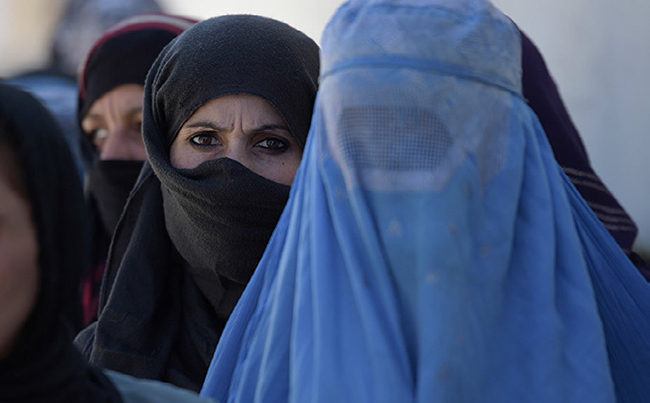Basically, the Bonn agreement in 2001 served as a framework for the establishment of democratic government in Afghanistan. Among others, the implementation of the Bonn Agreement led to the adoption of a national Constitution, which enshrines the principle of equal rights for men and women; it led to an increase of women’s participation in civil and political life; and it led to a commitment to respect international human rights, including through the ratification of the Convention on the Elimination of All Forms of Discrimination against Women (CEDAW). In addition, several legislative and institutional advances have been made towards the promotion of human rights broadly and women’s rights in particular, including through the creation of a national human rights institution, a ministry for women’s affairs at the national level and departments of women’s affairs at provincial level, human rights units in various ministries, gender units in some ministries and the enactment of landmark legislation on the Elimination of Violence Against Women (EVAW).
EVAW was created through a Presidential Decree in 2009 and it includes a reference to “fighting against customs, traditions and practices that cause violence against women contrary to the religion of Islam”. The law lists 22 acts of violence including among others, rape; forced prostitution; burning or poisoning women; engaging in violent behavior which causes women to commit suicide or self-harm; causing injury or disability; battery; selling women for the purpose of marriage; baad; forced marriage; and underage marriage.
The EVAW law represents a key step towards the elimination of violence against women and girls and includes both criminal and civil remedies. For the implementation of the EVAW law, the Government has established an EVAW Commission, specialized EVAW prosecution units in some provinces, and Family Response Units within some police stations. Furthermore, in order to provide a responsive reporting environment, the recruitment of more women police officers has been undertaken. Training and awareness-raising activities for relevant state authorities continue to take place, especially with the support of the international community.
Despite above achievements, there are also challenges such as lack of effective interpretation and implementation of relevant laws by State authorities, particularly the EVAW law. Many reports indicate that the unresponsiveness and pervasive gender-bias in the policing sector is a barrier to reporting. Moreover, the failure to investigate or prosecute crimes committed against women and girls, continues to reinforce a climate of impunity, and normalizes violence and renders it as acceptable. Allegations of discriminatory judgments and arbitrary sentencing patterns, as experienced by women defendants, can also reinforce the lack of trust in the formal justice system.
Furthermore, many women and girls who are subjected to violence do not come forward to register complaints due to their lack of knowledge of the law and its protective remedial provisions; fear of reprisal from the perpetrators and family members; financial and other constraints, including the lack of freedom of movement; and fear of being treated as criminals instead of victims, when reporting crimes committed against them. Women and girls who try to escape from situations of violence or abuse are often condemned and shunned by their families, communities and the authorities, and are threatened with death, should they return home.
According to recent reports 80% women are faced with violence and A large number of women and girls live in a context of deep inequalities for instance: food discriminations, underdevelopment, high levels of illiteracy, and the lack of educational and employment opportunities, more especially those living outside of the cities. In these circumstances, the challenge of addressing issues of violence, difficulties of obtaining a divorce, inheritance deprivation, fears about removal of children from their custody, and the inability to return to their homes and communities, all contribute to women choosing not to leave abusive situations. The existence of shelters in some provinces could be seen as a protective remedy for women seeking to flee their violent and discriminatory situations. But in traditional contexts of Afghanistan when a woman spends night out of home she considered as an impious woman. So, Shelters do not have a good profile rather it viewed by many individuals as institutions which encourage women to leave home; to behave immorally and outside of what is traditionally considered ‘acceptable’ in a conservative and religious society; as prostitution houses; and as establishments that are causing the break-up of families. It is clear that many women and girls spend long periods of time in shelters, sometimes up to five years. This is unusual but necessary in Afghanistan, considering the reality of women’s situation as described above. For the medium and longer term, there is a need to think about solutions for the long term housing needs of women and girls, so as to enable them to transition from shelters to more independent and safe living arrangements.
Finally, being a student, at the same time as someone who is aware of women situation and as acted as a National Coordinator for CEAW reporting process in MOFA, I think it is important to recall that Afghanistan has international legal obligations to meet, as set out in, among other treaties, the Convention on the Elimination of All Forms of Discrimination against Women and the Convention on the Rights of the Child. The State has a responsibility to act with due diligence to eliminate all forms of violence against women and girls. This responsibility includes the protection, prevention, investigation, punishment, and provision of effective remedies, including compensation measures. Furthermore, the State has a responsibility to hold accountable not only the perpetrators of violence, but also state authorities who fail to protect and prevent the violations of women and girls human rights, due to a lack of response or because of ineffective responses.
Home » Opinion » UPs and Downs to Women’s Rights
UPs and Downs to Women’s Rights
| Mohammad Zahir Akbari

